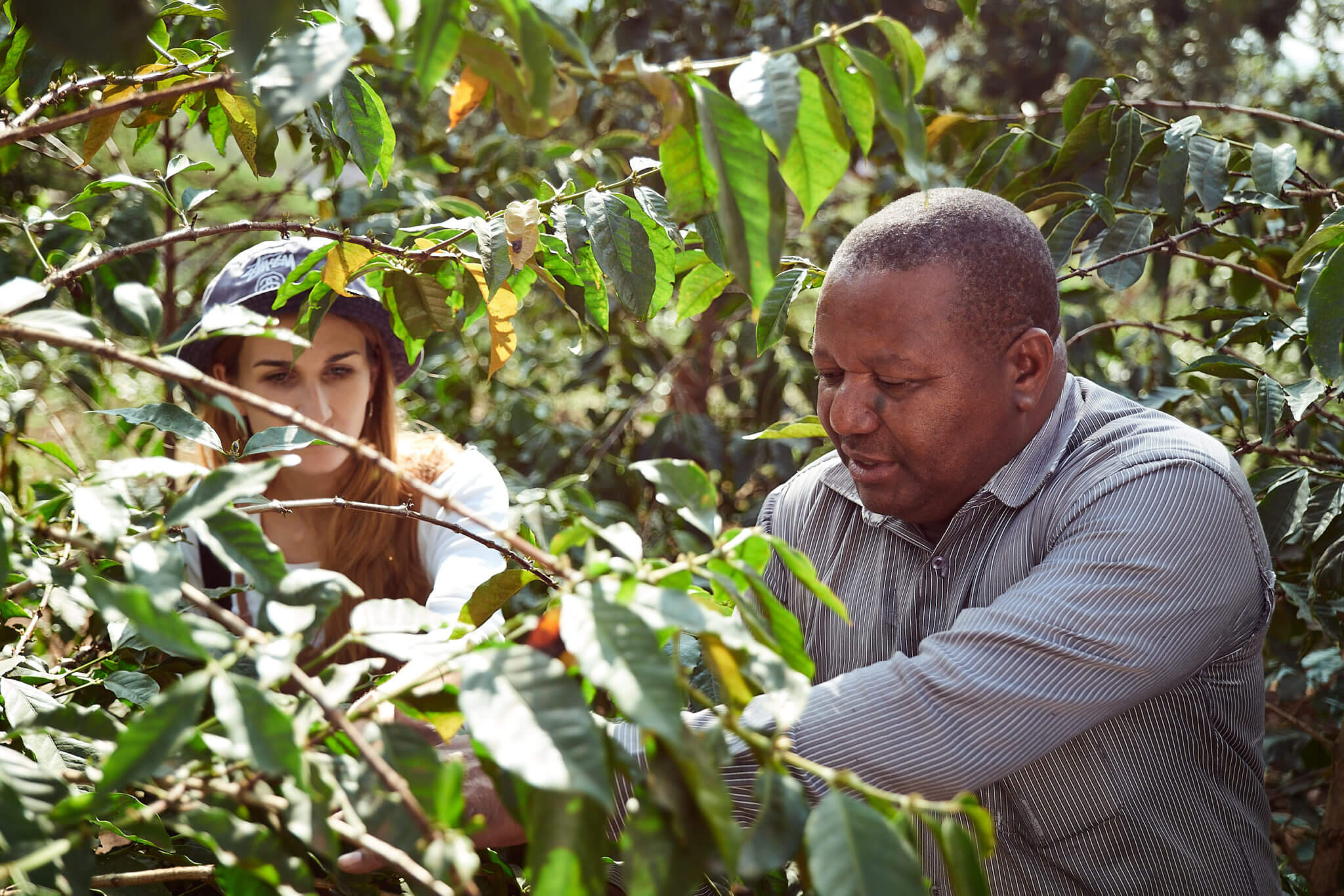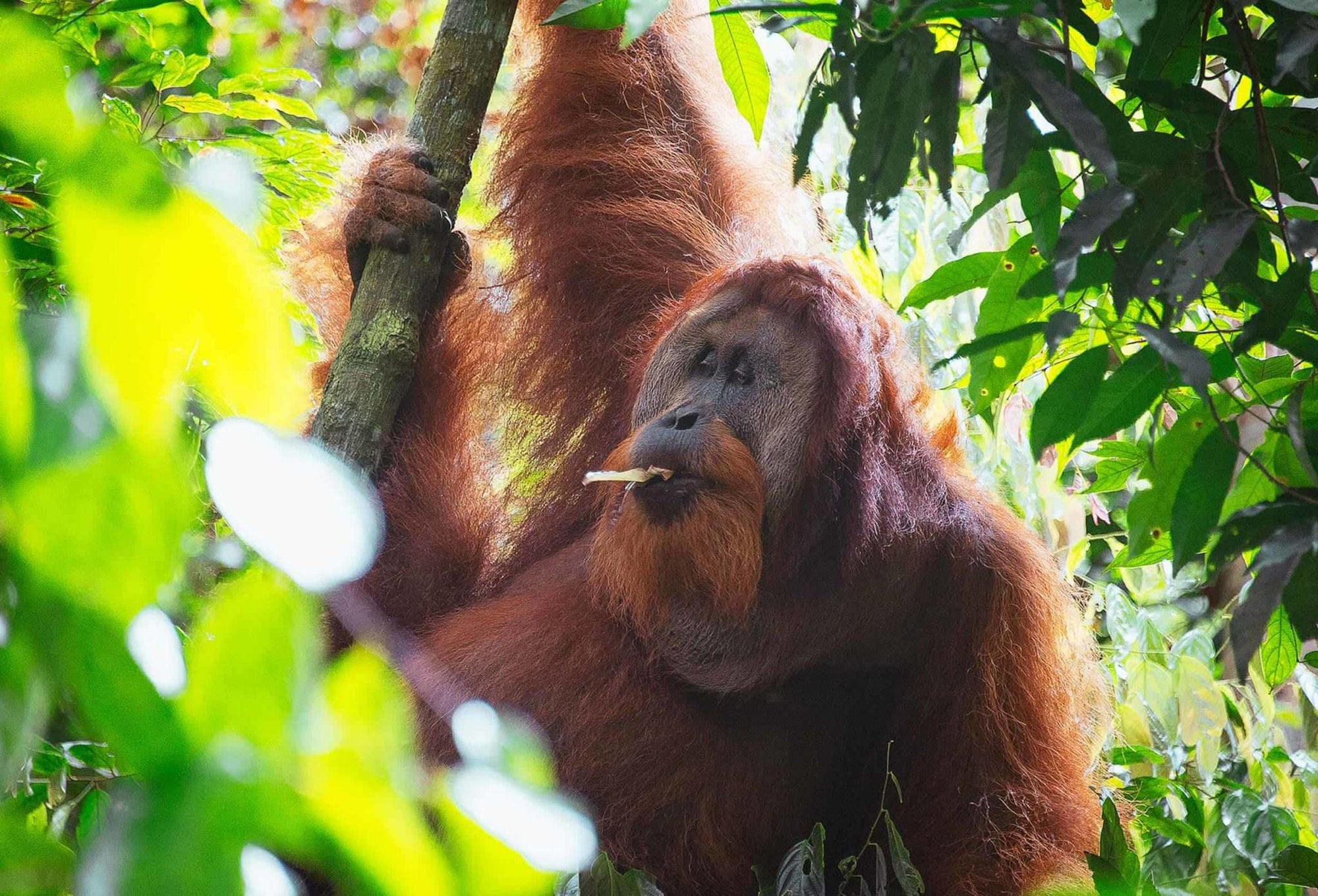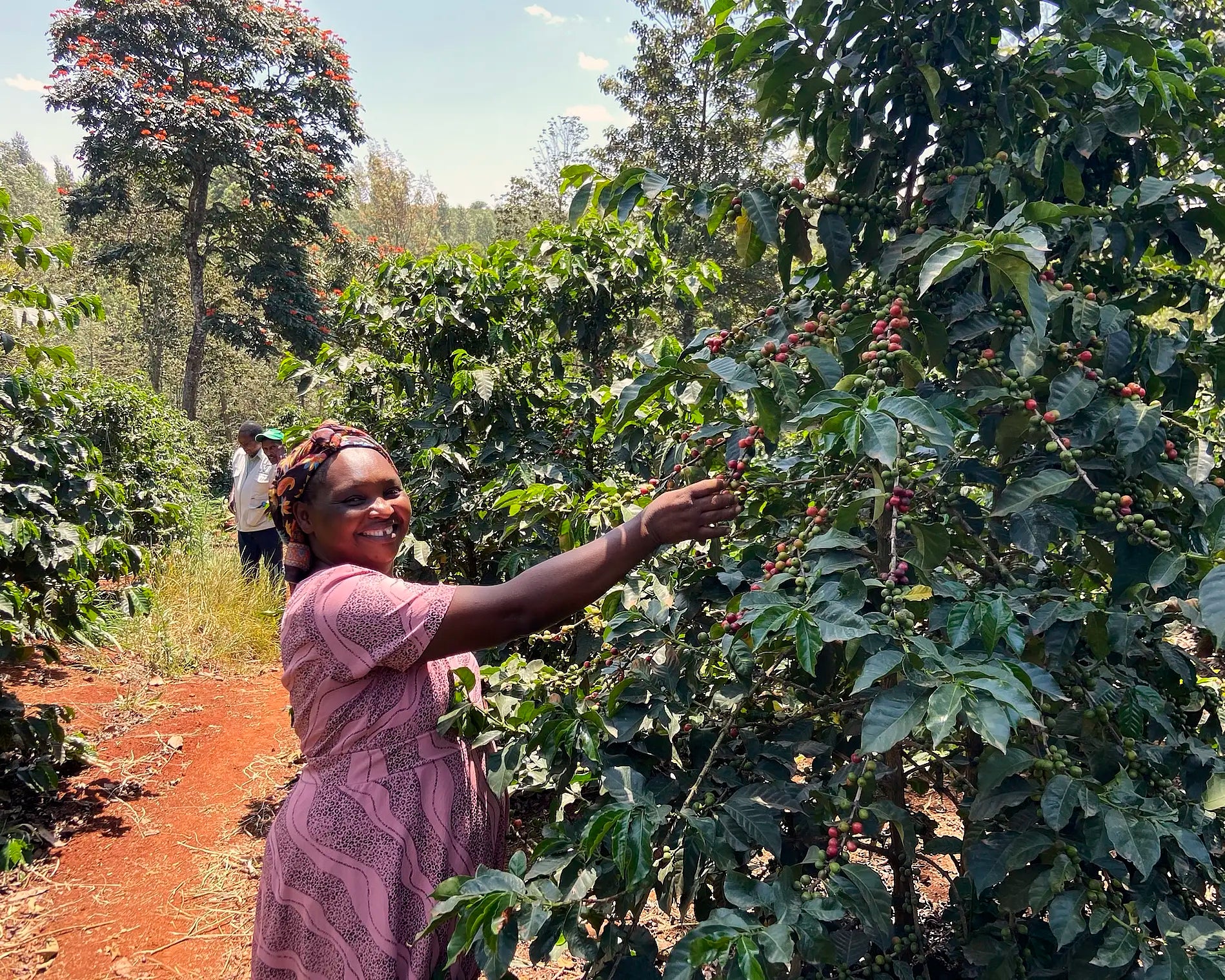
During our visit to the Mondul Coffee Estate, we’ll look at the success of our jointly developed projects, make new plans for the future, and experience first-hand the day-to-day operations of a coffee farm. We’ll stay on the farm for two weeks and, as part of our Management Trainee Program, will lend a hand at every step of the production process.
Together with Dean, we drive from Arusha up into the slopes of the Monduli Mountains. Dean is the general manager of our long-time partner farm, Mondul Coffee Estate. The farm is not only home to wonderful coffee, but also to a talented soccer team, which is playing against the neighboring village when we arrive. The next day, Messi, the man in charge of water management, takes us through the jungle up to the water source – A four-hour hike that he himself undertakes weekly. “No water, No life,” Messi says. He’s right, and for that he sometimes has to repair pipes damaged by elephants.
Farm manager Amarine, his assistant Willy and supervisor Winnifrieda guide us through the daily work on the farm, which starts at 7:00 in the morning with a common and ecumenical prayer. While the pickers are on their way to the field, after 48 hours of fermentation, the beans are transferred from their tanks to the washing channels in the factory, where their remaining fructose is removed and they are sorted according to density. At the same time, the already drying beans are spread out on the drying beds and turned for another day under the African sun.

During the next two weeks we will become part of this daily routine and learn for life. We will unceremoniously take over morning prayers, sort and wash beans, make organic pesticide, and pick not only ripe cherries, but also pests from the trees by hand.
Every day our route to work takes us past the young trees of the Njuki field, which, in collaboration with ViCAFE, are being cultivated without chemical herbicides and fungicides for the very first time. The planting of this field has been so successful that we are already planning the next joint project. In cooperation with the ViFOUNDATION, Mondul Coffee Estate will reforest a fallow part of the farm, thus breathing new fertile life into the soil.
Our last days are approaching and Amarine organizes a barbecue. The main dish walks happily past his office before it’s slaughtered in our presence in the afternoon and draped on the grill for the evening meal. As frightening as it was in a very natural way, the evening was just as beautiful. Many came with their families to feast on every piece of meat on this goat together, to celebrate the life sacrificed as well as our own, and to drink to one or the other Kilimanjaro.

We end up saying goodbye to new friends and the dense green hills of Mondul, and head to the urban jungle of Dar es Salaam to finish our journey. Here, we meet with the forwarding agent Julius. He calculates freight rates, accepts coffee shipments and makes sure that they are consolidated in the container freight stations in the port. He also selects suitable containers and arranges for various measures to be taken to protect the coffee from the elements as best as possible during its journey across the ocean. The interior is lined with cardboard, for example. This prevents moisture from penetrating and thus prevents condensation. Once a container has been prepared and loaded, it is officially sealed and ready for shipment.

While our journey ends here, the beans still have a long way to go before they arrive at our roastery, and we take the final steps to give you the opportunity to travel with us to this farm for a brief moment when you experience the aroma of this wonderful coffee.

Text: Sarah Ackermann, Felix Goelzer Pictures: Sarah Ackermann, Aaron Fee



